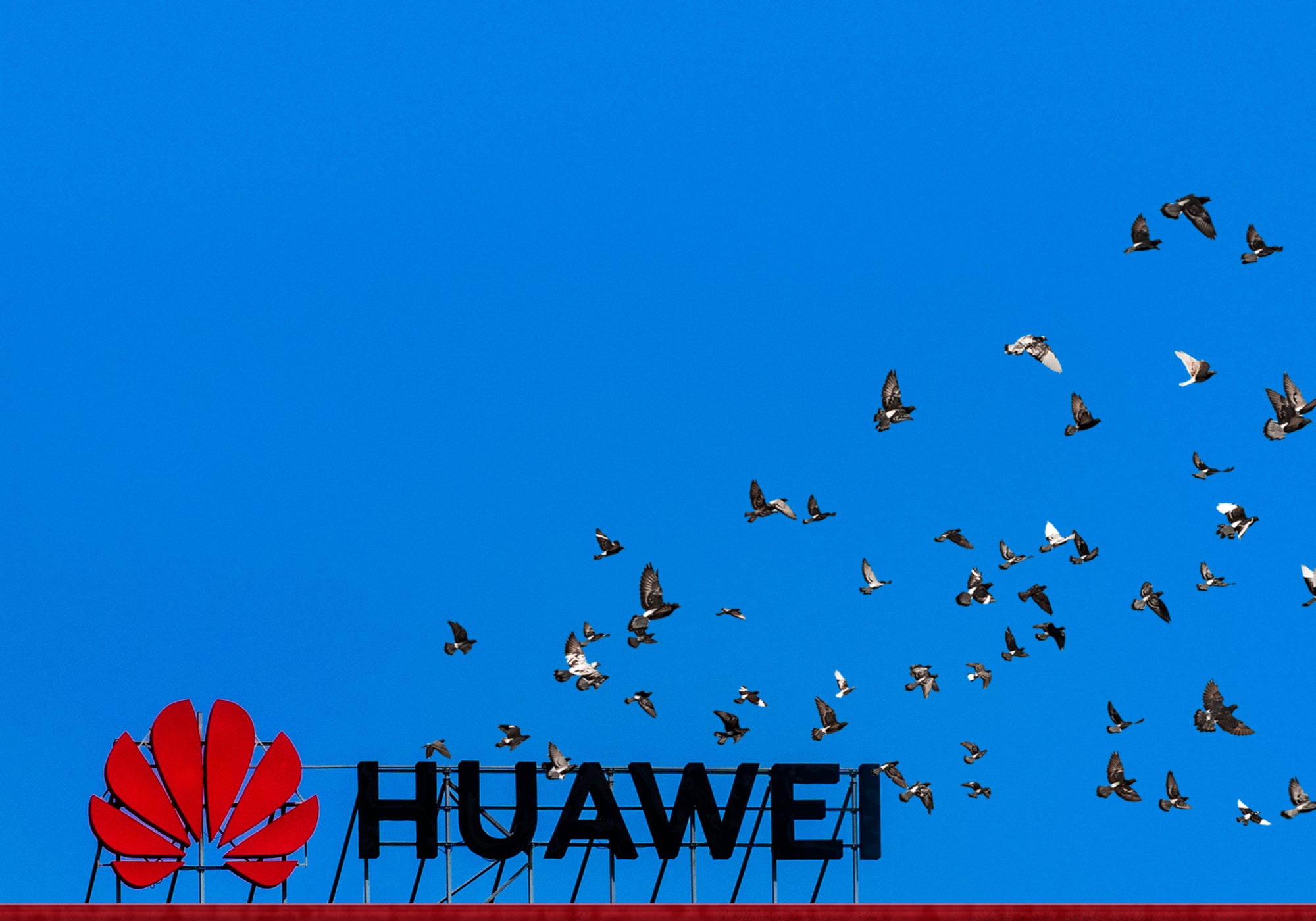
When Boris Johnson gave telecoms firms the green light to use Chinese technology giant Huawei’s 5G equipment back in January, it appeared to draw a line under the matter after more than a year of delay.
This sense of finality was short-lived and six months on it looks increasingly likely that the UK is preparing to exclude Huawei, classed as a “high-risk vendor”, from its 5G and fixed-broadband networks.
So, what’s changed? From Huawei’s end, not much. From the UK’s perspective, quite a lot.
The biggest catalyst for the now expected U-turn is the latest sanctions imposed by the US on China in mid-May. The rule change means that foreign companies will require a US license to supply American chips and chipmaking equipment to Huawei.
Unlike the previous US entities blacklist, these latest restrictions are more targeted and, crucially, have created cause for concern among security experts, who fear that Huawei will be forced to use less secure chip alternatives.
A new report from the National Cyber Security Centre (NCSC) into the security implications of the latest sanctions, due this week, is expected to deal a devastating blow for Huawei.
How well do you really know your competitors?
Access the most comprehensive Company Profiles on the market, powered by GlobalData. Save hours of research. Gain competitive edge.

Thank you!
Your download email will arrive shortly
Not ready to buy yet? Download a free sample
We are confident about the unique quality of our Company Profiles. However, we want you to make the most beneficial decision for your business, so we offer a free sample that you can download by submitting the below form
By GlobalDataAccording to the Daily Telegraph, the report has concluded that the sanctions have had a “severe” impact and “significantly changes” NCSC’s risk assessment.
Up until now, British cyber intelligence agencies have long insisted that they can safely carry out a “risk management” approach to Huawei. This would have kept Huawei technology out of the sensitive, or core, part of the UK’s 5G network. Huawei would also be subjected to a 35% market cap for the non-core infrastructure.
But Sir John Sawers, the former head of MI6, said that if accurate, the reports give Johnson “sound technical reasons” to reverse his Huawei decision.
One government source told Verdict that “it’s all over” and that it’s now a case of “choreographing the climbdown”.
Rip and replace Huawei 5G?
What might that look like? In the short term – as little as six months – officials are reportedly drawing up proposals to prevent telecoms firms, such as BT and Vodafone, from installing new Huawei equipment.
But the government is still faced with the more long term – and expensive – problem of the existing Huawei telecommunications equipment in the UK’s 2G, 3G and 4G networks.
So-called “rip and replace” measures could cause significant delays to the UK’s 5G rollout, telecoms firms have warned.
“The UK’s leadership in 5G will be lost if mobile operators are forced to spend time and money replacing existing equipment,” said Vodafone UK CTO Scott Petty, in an interview with the FT.
One option could be to accelerate the rate in which telecoms firms replace Huawei technology at the end of the equipment’s lifecycle, replacing it with rival tech made by Nokia or Ericsson.
There are approximately 21,000 telecoms sites across the UK using Huawei equipment, according to one industry estimate.
But Huawei does not consider it game over just yet and says it is “working closely” with its customers to find ways to manage the US sanctions.
“We believe it is too early to determine the impact of the proposed restrictions, which are not about security, but about market position,” Victor Zhang, VP Huawei, told Verdict.
“As ever, we remain open to discussions with the government. All our world-leading products and solutions use technology and components over which the UK government has strict oversight. Our technology is already extensively used in 5G networks across the country and has helped connect people throughout lockdown.”
A changing geopolitical landscape
At its heart, the Huawei 5G debate can be broken into two core elements: the technical and the political.
The US has long insisted that Huawei poses a national security threat because of its close ties with the Chinese state. Huawei has strongly denied that it has or will create security backdoors to spy on other countries at the behest of the Communist Party of China, and the US has provided no solid evidence of this.
That didn’t stop the US from intensely lobbying the UK to ban Huawei in the build-up to the January announcement. US officials have consistently warned that allowing Huawei into the UK’s 5G network would threaten intelligence sharing between the two countries – a threat that UK Defence Secretary Ben Wallace and NCSC CEO Ciaran Martin said is yet to materialise.
But recent geopolitical events – China’s lack of transparency in its early handling of the coronavirus pandemic and its controversial Hong Kong security law – have spurred Conservative MPs into rebellion.
In March a prominent group of Tory MPs voted against the government, in an attempt to force Johnson to establish a concrete timeframe for removing Huawei from the UK’s phone networks. The rebellion ultimately failed, but Johnson’s 80-strong majority was cut to just 24.
Prime Minister Boris Johnson is expected to be presented with the latest NCSC findings this week, before sharing a new Huawei strategy in Parliament later this month. The exact details of this remain unclear. But what is clear is that the political winds have changed direction for Huawei, and its role in the UK’s 5G network looks less certain by the day.
Read more: Too late for UK Huawei rival but other domestic 5G options remain, experts say




